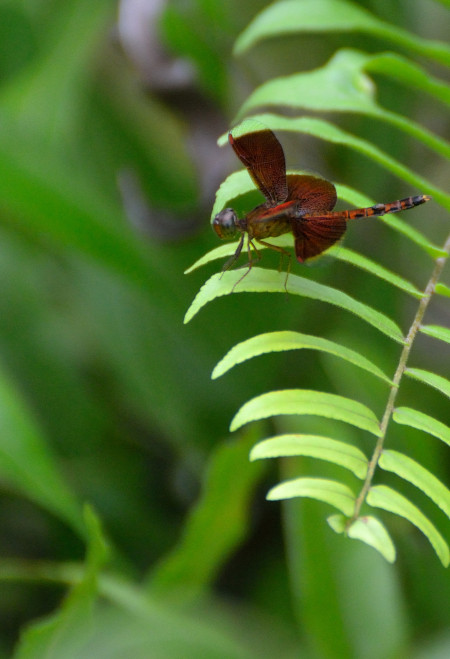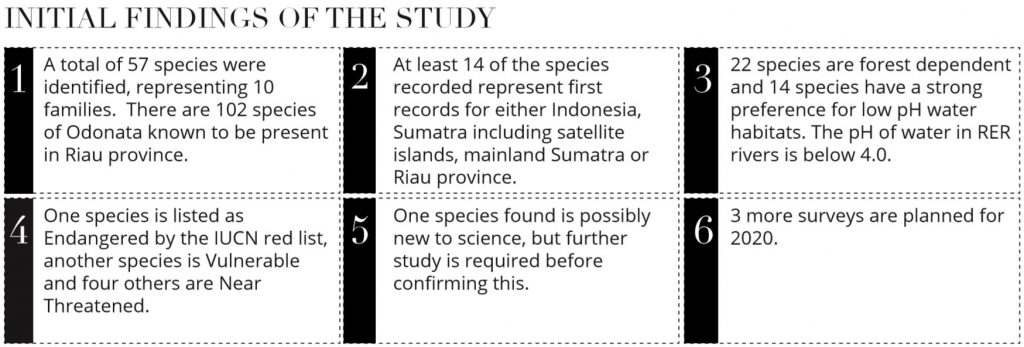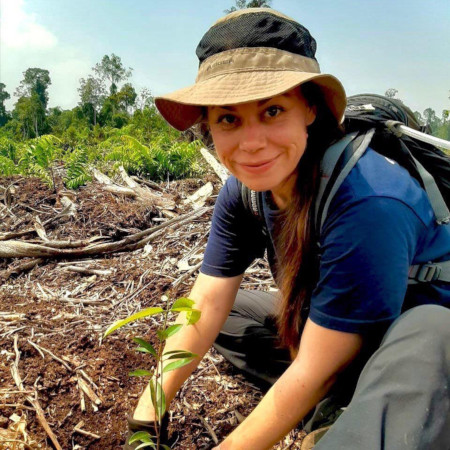14 Jul, 2020
Understanding Biodiversity with Odonata Species
Sateri, together with Restorasi Ekosistem Riau (RER), has embarked on a study to document the Odonata (dragonfies and damselfies) species of the Kampar Peninsula, Sumatra, Indonesia. Odonata are carnivorous winged insects with aquatic larvae dependent on water for development at the larval stage. They are a wellknown fagship group for insect conservation and can serve as proxy indicators of water quality and ecosystem health of the immediate environment where they are found.Peat swamp forests are home to a number of specialised species of Odonata and some of the largest remaining of such forests can be found in Indonesia’s Kampar Peninsula and on Padang Island. A signifcant part of these two landscapes are managed by Sateri’s strategic supply partner, APRIL Group, with 150,000 ha specifcally managed under the Restorasi Ekosistem Riau (RER) initiative which aims to protect and restore ecologically signifcant degraded peat swamp forests.

Little is known about the Odonatan fauna in Sumatra, and baseline surveys of Odonata in this habitat type are of urgent importance for the conservation of individual species and to provide information about water quality and local ecosystem health.
The main objectives of the study’s initial phase are to establish a baseline inventory of the Odonata present in the Kampar Peninsula and develop a Dragonfy Biotic Index (DBI) for the area. Once established, a DBI metric provides a means of monitoring and measuring the environmental health and conservation status of aquatic ecosystems over time.

“Although insects play a critical role in the ecosystem and are incredibly diverse, they are often overlooked. This Odonata survey is one of the frst on the Kampar Peninsula and has provided us with signifcant insights which have included new records of species in Indonesia. We look forward to learning more about the dragonfies and damselfies of the peninsula and exploring their potential as environmental indicators with the development of the DBI, in coming months”. – Dr. Chela Powell, RER Restoration Manager.

